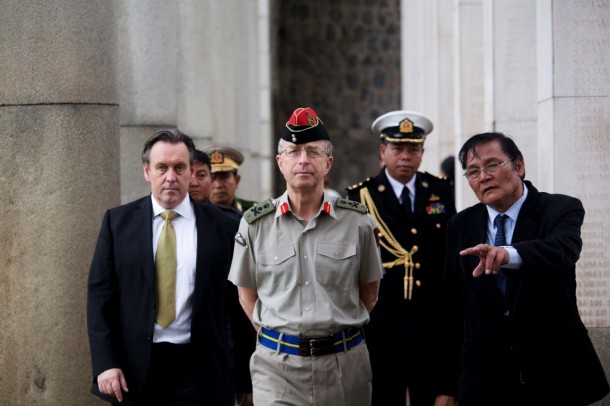The British government has approved arms export licences worth over US$5 million (£3.3 million) to Burma, even though it is considered a country of “serious human rights” concern and continues to be the subject of an EU arms embargo.
A parliamentary investigation into the UK’s arms exports concluded that human rights standards have been “fundamentally undermined” by the scale and nature of licences issued to countries of concern, including Burma, Iran and Syria.
The UK acknowledged that a rise in exports to Burma between 2010 and 2011 has made it harder for them to enforce the arms embargo. “Whilst the vast majority of this trade is legitimate, there is a potential for increased illicit exports as well,” the government conceded to parliament in a report published on Wednesday, adding that it was investigating cases of “non-compliance”.
The UK currently has eight active arms export licences for Burma, including Standard Individual Export Licences (SIELs) for bomb suits and devices used for initiating explosives, high performance air traffic control software and cryptographic equipment.
The vast majority of expenditure (totaling £3.2 or US$4.9 million) was designated for inertial navigation systems, which may be used by the military to guide aircrafts, submarines and missiles. The report also reveals that a request to export small arms ammunition in 2011 was rejected, but does not divulge more details.
In a written response to parliament, the government insisted that a licence for cryptographic software was for civil use by a “known international media group” and did not breach the embargo. However, no further information about the multi-million dollar export deals has been made public.
The revelations coincide with President Thein Sein’s first visit to London, where the UK offered to help provide military training to Burma in a bid to “help” resolve ethnic tensions. Burma has been subject to an EU arms embargo since 1996 as a result of the former military regime’s persistent violations of human rights, including military attacks and abuses against civilians in ethnic minority regions.
“It is highly concerning to see the number and value of licences going to countries that we know are not respecting the human rights of their own and neighbouring populations,” said Richard Burden, a Labour MP and member of the House of Commons Committee on Arms Exports.
Thein Sein has received international praise for introducing a series of democratic reforms in Burma since taking office in 2011, prompting the EU to drop most economic and trade sanctions, but not the arms embargo.
The UK can still approve the export of arms-related or “controlled” goods to Burma, as long as it is not intended for military purposes. But human rights groups say its failure to disclose all details surrounding the sales raises questions.
“They need to reveal exactly who made the requests for these exports, who they went to, and what their intended use was,” said Mark Farmaner, Campaign Director at Burma Campaign UK. “Given the emphasis of the British government on building ties with the Burmese military, unless they are completely transparent this will fuel suspicions that they want to start selling arms to Burma.”
The UK government did not immediately respond to a request for comment.



